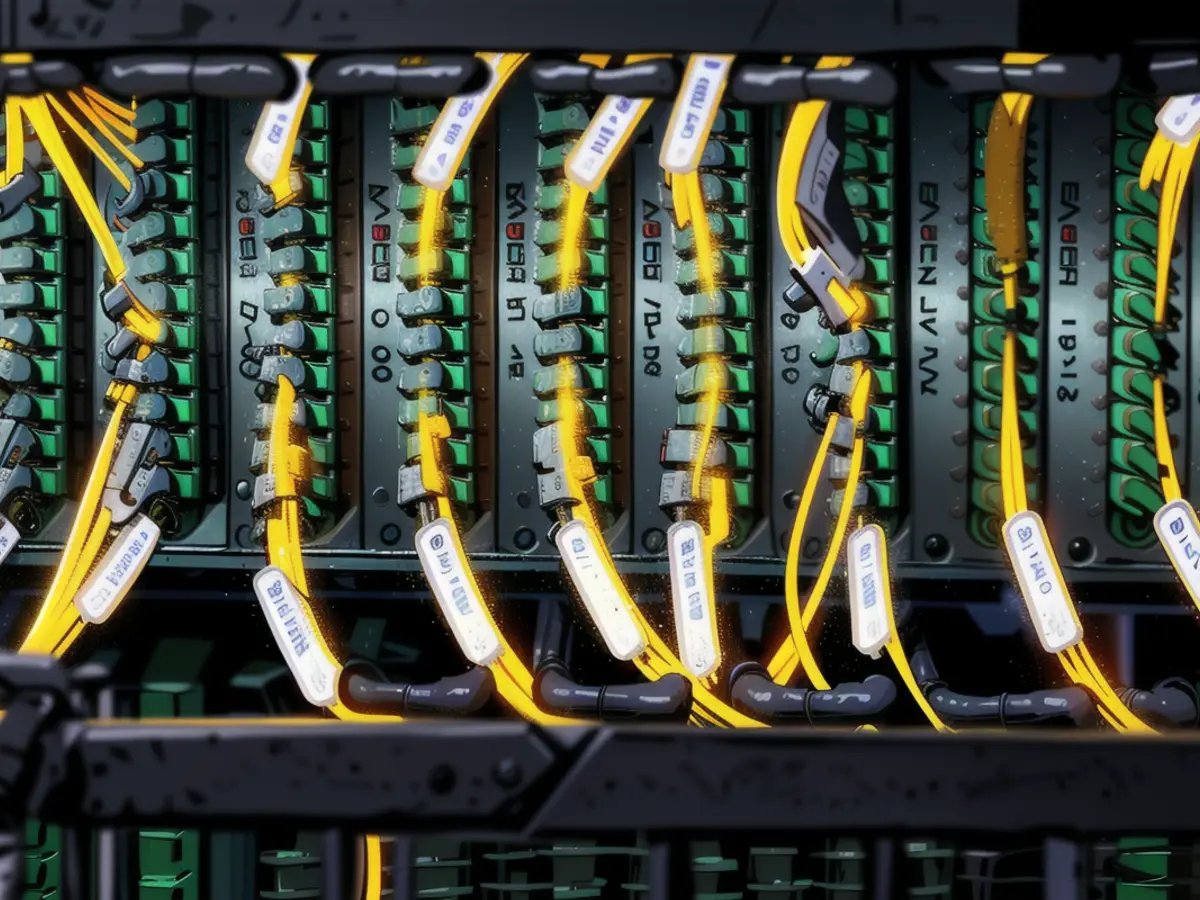Street lamps transform into compact data centers.
"The Internet is a truly amazing creation," remarks Ivo Ivanov, the chief executive of the globe's most extensive Internet node, De-Cix. As a neutral intermediary, an Internet node facilitates the exchange of massive quantities of data between network operators and content providers.
Our existence is practically unimaginable without the Internet. Recent data from market research institute Gim reveal that a tremendous 95% of Germans aged 14 and above have dabbled in the online world at some point. Streaming your preferred series, audiobook, or music effortlessly necessitates a steady connection, a streaming platform, and an Internet node. These serve as data traffic junctions.
Ivo Ivanov reigns supreme over De-Cix, a company that operates the world's premier Internet node in Frankfurt am Main. In his recent appearance on the ntv podcast "So techt Deutschland," Ivanov emphasized that, "vast amounts of data are exchanged there." During peak hours, like during a Champions League match, the data transmission can take on astronomical figures. The most recent estimation suggested that it would be proportional to four billion A4 pages, compared to 420 kilometers in height if stacked up. This baffling volume of data is then forwarded through the Internet node each second.
As the demand increases, Ivanov envisions that more fiber optics, more 5G, and edge data centers will be in high demand to accommodate these demands. Edge data centers are petite units situated close to end users. In the foreseeable future, even streetlights could potentially become mini data centers, being a vital part of a decentralized Internet node.
This isn't just about rapid Internet for all and sundry, but also about digital sovereignty and the survivability of business hubs. "Investing in digital infrastructure is a crucial component of the economic engine of the future," claims Ivanov.
Frauke Holzmeier and Andreas Laukat had a chat with Ivo Ivanov. You can tune in to the full interview on the ntv podcast "So techt Deutschland."

Read also:
- Lack of snow also opens up new opportunities for winter tourism
- Abrupt end to e-car subsidies
- The chemical industry has little confidence
- Intersport boss hopes for sales boom through sporting events
The shift towards edge data centers, such as equipping street lights with minimal data centers, is a proposed solution to handle the increasing Internet demand. This would allow for a more decentralized Internet node, making data streaming more efficient and reliable. With the majority of Germans utilizing the Internet for streaming content, Internet use and streaming services are highly reliant on stable connections and reliable data exchange platforms.
Source: www.ntv.de








